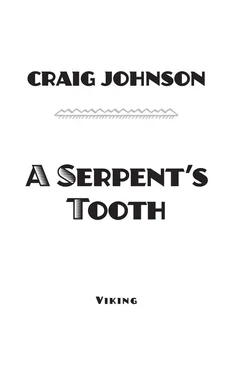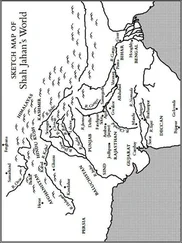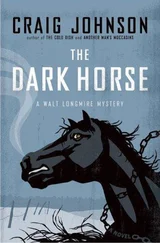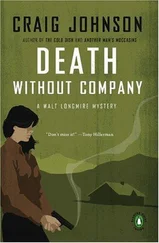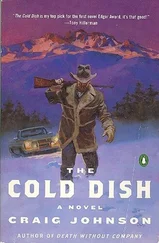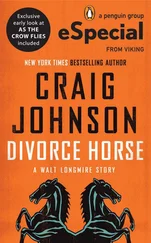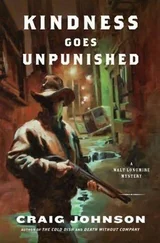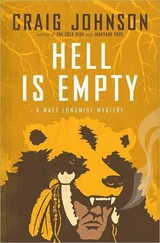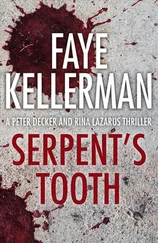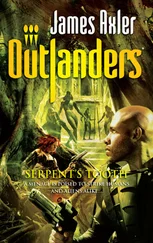I laughed. “Our bishop may be fianchettoed.”
“Huh?”
“A chess move where the bishop can form a long, diagonal defense of a castled king. Anyway, I think the good bishop wants to write a book about Orrin Porter Rockwell, and the prisoner in question might be a shortcut in the research department.”
“He seems to know an awful lot about him.”
“That he does. Any word on who he really is?”
“I tried to get his fingerprints, but he resisted, so I took them off of a glass of water.”
I glanced at the one in my hand. “Remind me to never get on your bad side.”
He pulled the papers from his underarm and looked at them. “It makes for some interesting reading.”
I studied the Basquo’s face. “Oh, now, why don’t I like the sound of that?”
“Well, you know we’re limited to service personnel and criminals on the fingerprint bank. . . .”
“Right.”
“Well, I got nothing.”
“So he’s clean?”
“Not exactly.” He flipped one of the pages over and handed it down to me as Dog settled in and stretched out, figuring we were here for the long haul.
There was an enlarged, washed-out, mimeographed two-by-two photo, not unlike the one that had accompanied Saizarbitoria’s résumé from the Wyoming State Prison in Rawlins back when he’d been attempting to flee working in corrections. The man in the photo was trim, young, and straining with wiry muscle. There was an intensity in the light, opal-like eyes that was hard to miss and still in evidence. His hair was so close-cropped to the side of his head that his ears looked like he was cleared for takeoff—ears I thought I’d seen somewhere before on someone else.
The official form from Ellsworth Air Force Base was a military identification for the year 1957 but stated that all information was classified.
“Intelligence.”
“Maybe, maybe not.” He tapped the papers in his hand. “I had a friend at the National Personnel Records Center who found this in the files that said he was on loan to Civil Air Transport, under the auspices of the American Airdale Corporation. . . . Get it? Air, Dale . . . ?”
“No.”
“You will. Two years later Civil Air Transport and American Airdale changed their name to the much storied Air America.”
I knocked the receiver off the phone. “CIA?”
“Spooky as the night is long.” He laughed. “Up to ’62 he flew direct and indirect support for CIA Ops Ambidextrous, Hotfoot, and White Star, and then trained the Royal Laotian armed forces. After that he was involved with something called Project 404 as an air attaché to the U.S. embassy in Vientiane, and then he provided logistical support to the Royal Lao and Hmong armies under the command of General Vang Pao.”
I’m sure what the Basquo had discovered was pretty important, but I was getting a little tired of all the dramatics. “C’mon, CIA?”
“Wait, there’s more.” His eyes returned to the paper. “He was shot down in ’64 while making what they called a hard rice support run in the mountains dropping off weapons to tribal leaders who were opposed to the North Vietnamese. He was listed MIA, but by the end of the war in ’73 he was listed as a war casualty. Okay, so jump-cut to this VISTA volunteer working in Vietnam who happens to see this white guy with a beard and long hair working on a prison road crew in ’75 and goes over to him and asks him his name.”
“Yep?”
“The guy looks up slow and has some trouble getting his voice and remembering how to speak English before telling the kid his nickname, Airdale .”
“I don’t get it.”
“From Short Drop, Wyoming.”
I stared at him.
“Dale Airdale Tisdale.”
DT Enterprises.
11
Henry sipped his beer and leaned back in Ruby’s chair. “The woman who owns the mercantile, his wife, Eleanor, says he died in a plane crash in Mexico?”
I glanced back at him. “Yep, but he supposedly died crashing a plane in North Vietnam, too. It seems to me he’s made a habit of crashing and dying all over the globe.”
The Bear, the Basquo, and I had been surprised to find a few Rainiers in the commissary icebox and were sitting in the dispatcher’s area at the front of the office like truants.
Sancho sat on the bench by the steps and turned the copy of Tisdale’s faded, black-and-white head shot in his hands, then stretched an arm out and forced Henry and me to stare it in the eye. “Tell me that’s not him.”
The thing looked like a photo of a ghost. The eyes were the same, but the identifying feature was the ears—ears exactly like his grandson’s. “So what was he doing flying around Mexico?”
“You tell me.”
The Bear added. “And dead, no less.”
I thought about it. “If he’s Sarah Tisdale’s father, then he had to be back here in Wyoming for at least a night.”
Saizarbitoria sipped his Rainier. “Uh-huh.”
“You thinking what I’m thinking?”
He looked at the can. “That this is the shittiest tasting beer ever?”
“That’s not what I’m thinking.” The Cheyenne Nation chuckled, and I took a long swig out of my own can, just to make a point. “That he was still on the Company payroll down in Mexico.”
Sancho belched and made a face. “Lawyers, guns, and money?”
“I guess I need to talk to Eleanor Tisdale, not that I’m looking forward to it.”
The Basquo nodded his head, knocked on the bench as if it were a door, and broke into a faux, flowery announcer voice. “Mrs. Tisdale, we’re sorry to report that we think your daughter’s dead, but guess who we have behind door number two?” I sighed, and he continued. “You guys know anybody at the CIA?”
Henry and I glanced at each other, and then I pulled out my pocket watch. “As a matter of fact, we do.”
• • •
Wally was surprised to see me at eight o’clock at night at the door of the main house at the Lazy D-W but maybe even more surprised to see the Cheyenne Nation. The patrician-looking silver-haired man led us into their den, where Donna sat with a wine glass of sparkling water at her side.
I noticed that she casually flipped the top sheet of a prodigious stack of papers to keep the Bear and me from seeing the title. “Are those your memoirs?”
She laughed. “Something like that.” She and her husband made eye contact for a moment, and then Wally gave us a brief nod and left.
Looking at all the stacks of books, photos, plaques, and awards that the woman had accumulated over the years, my eyes wandered around the crowded room—Donna with presidents Nixon, Kennedy, and Johnson; Donna with ex-senators; Donna with movie stars. I pointed toward the one of Donna and LBJ standing together. “Relation?”
She smiled. “Nope, but he gave me the best advice I ever got about public life.”
“And what was that?”
“You know, Walt—never turn down the opportunity of a free meal or a chance to go to the bathroom.”
There was another photograph near where Henry sat of Donna in a parka and a man in army fatigues and an Airborne cap. The Bear reached over and tapped the glass protecting the black-and-white photo of the two, who were seated with a snow-capped mountain in the background. “Is that Larry Thorne?”
“The man who brought modern skiing into the United States Army despite the United States Army. Sure is.” Donna smiled and pulled her chair closer, plucking the frame from the wall, turning it over, and handing it to Henry. “Recovery mission; the bodies from a military transport that crashed on an Iranian glacier in ’63. There was bad weather, and I radioed him to see if he wanted to wait on the operation. The weather got worse and transmission got sketchy, but I finally got through and Larry asked me if we wanted them to put the bodies back—they’d already gone up and gotten them.”
Читать дальше
